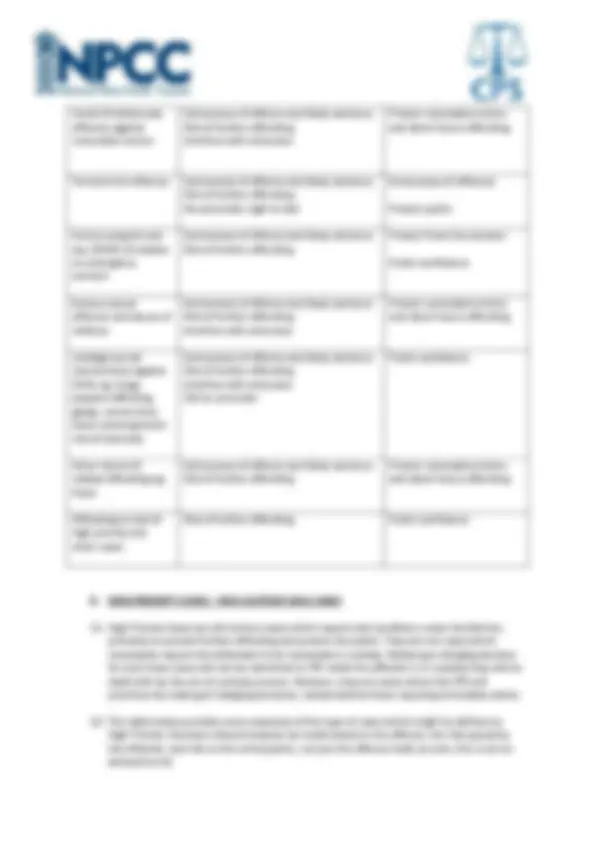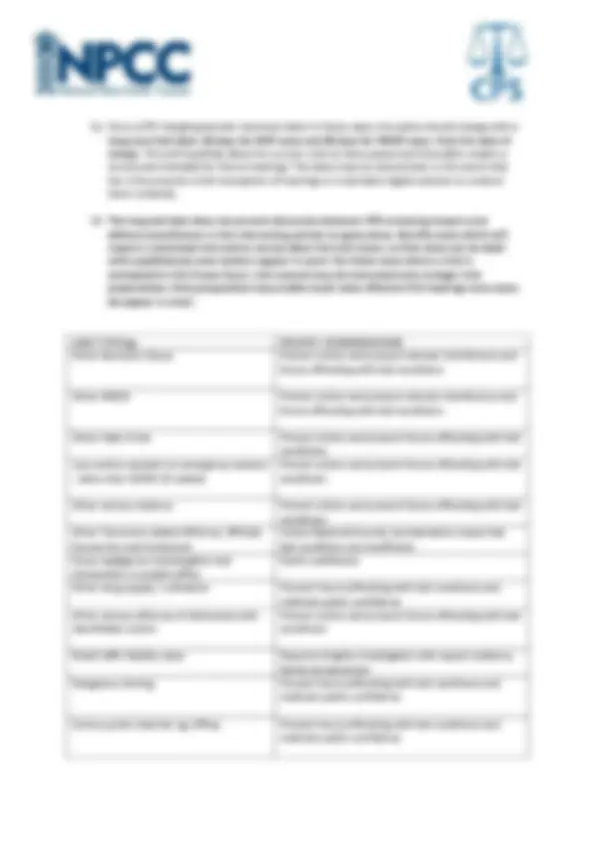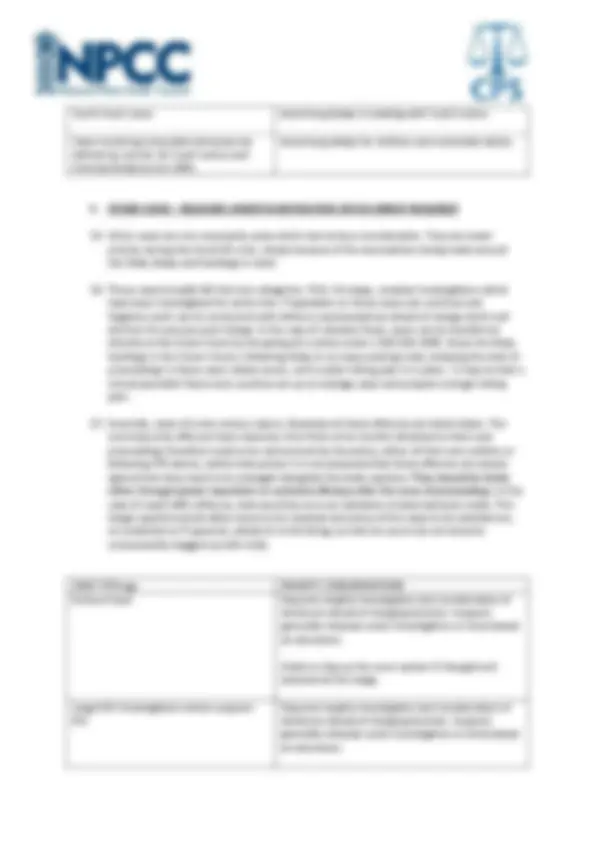





Study with the several resources on Docsity

Earn points by helping other students or get them with a premium plan


Prepare for your exams
Study with the several resources on Docsity

Earn points to download
Earn points by helping other students or get them with a premium plan
Community
Ask the community for help and clear up your study doubts
Discover the best universities in your country according to Docsity users
Free resources
Download our free guides on studying techniques, anxiety management strategies, and thesis advice from Docsity tutors
An interim protocol for managing criminal cases during the pandemic, categorizing them into immediate, high priority, and other cases based on their seriousness and the need for bail. Immediate cases include custody and COVID-19 related offenses, while high priority cases require bail conditions to prevent further offending and protect the public. Other cases can continue preparation ahead of charge to shorten the process post-charge.
Typology: Study notes
1 / 7

This page cannot be seen from the preview
Don't miss anything!




to them. In the current Covid-19 circumstances, it is essential that the CPS charging lawyers are focussed first on genuinely Immediate cases.
CASE TYPE Egs. BAIL ACT CONSIDERATIONS PRIORITY CONSIDERATIONS Homicides Seriousness of offence and likely sentence Risk of further offending Interfere with witnesses No automatic right to bail – murder
Seriousness of offences
High risk domestic abuse
Seriousness of offence and likely sentence Risk of further offending Interfere with witnesses
Protect vulnerable victims and deter future offending
Serious violence eg. Section 18
Seriousness of offence and likely sentence Risk of further offending Interfere with witnesses
Protect victims and deter future offending
Robbery and aggravated burglary
Seriousness of offence and likely sentence Risk of further offending Interfere with witnesses
Protect victims and deter future offending
Public confidence Very serious public disorder eg. Violent disorder
Seriousness of offence and likely sentence Risk of further offending
Protect public
Public confidence
CASE TYPE Egs. PRIORITY CONSIDERATIONS Other Domestic Abuse Protect victims and prevent witness interference and future offending with bail conditions
Other RASSO Protect victims and prevent witness interference and future offending with bail conditions
Other Hate Crime Protect victims and prevent future offending with bail conditions Less serious assaults on emergency workers
Protect victims and prevent future offending with bail conditions
Other serious violence Protect victims and prevent future offending with bail conditions Other Terrorism-related offences, Officials Secrets Act and Incitement
Unless National Security considerations mean that bail conditions are insufficient. Gross negligence manslaughter and misconduct in a public office
Public confidence
Other drug supply / cultivation Prevent future offending with bail conditions and maintain public confidence Other serious offences of dishonesty with identifiable victims
Protect victims and prevent future offending with bail conditions
Road traffic fatality cases Requires lengthy investigation with expert evidence, family bereavement Dangerous driving Prevent future offending with bail conditions and maintain public confidence
Serious public disorder eg. Affray Prevent future offending with bail conditions and maintain public confidence
Youth Court cases Avoid long delays in dealing with Youth Justice
Cases involving vulnerable witnesses (as defined by section 16 Youth Justice and Criminal Evidence Act 1999.
Avoid long delays for children and vulnerable adults.
CASE TYPE egs. PRIORITY CONSIDERATIONS Serious fraud Requires lengthy investigation and consideration of disclosure ahead of charging decision. Suspects generally released under investigation or interviewed as volunteers.
Likely to clog up the court system if charged and actioned at this stage.
Large SOC investigations where suspects RUI
Requires lengthy investigation and consideration of disclosure ahead of charging decision. Suspects generally released under investigation or interviewed as volunteers.
Annex B- DG5 paragraph 29
29. Area consultations
Consultations with Area prosecutors will take place in the most serious, sensitive and complex cases. These include:
Area consultations will be facilitated by a local CPS Area specific point of contact.
Early contact should take place to agree whether the consultation will be provided in writing, by telephone or face to face and what material is to be submitted to the prosecutor providing the advice or the charging decision.
Such consultations should take place without delay and the police should be informed when the written advice or decision will be provided.